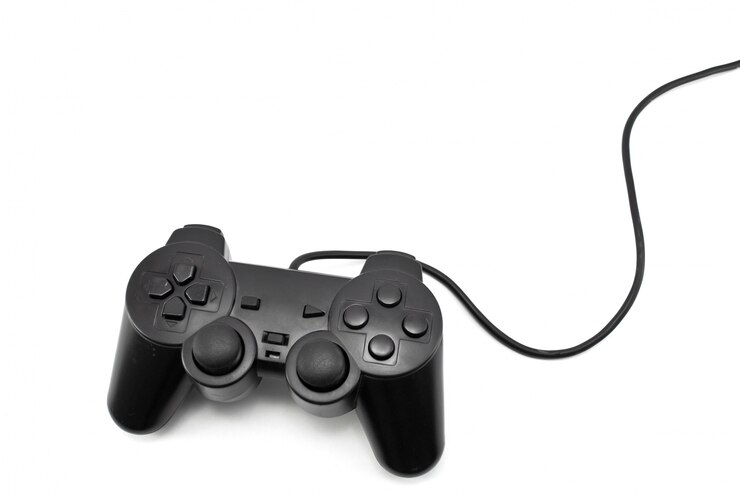The Ultimate Guide to Gaming Controllers: Enhancing Your Play Experience
Gaming controllers are an essential part of the modern gaming experience, providing players with the tools they need to interact with games in a way that feels natural and responsive. Whether you’re playing on a console, PC, or mobile device, the right controller can significantly enhance your gameplay, offering comfort, precision, and even a bit of style. In this blog, we’ll dive into the world of gaming controllers, exploring different types, features, and how to choose the right one for your gaming setup.
Types of Gaming Controllers
1. Console Controllers Console controllers are designed specifically for use with gaming consoles like the PlayStation, Xbox, or Nintendo Switch. These controllers typically feature a set of standard buttons (including face buttons, triggers, and bumpers), a directional pad, and analog sticks. Over the years, console controllers have evolved to offer more ergonomic designs and enhanced functionality, such as motion sensing or adaptive triggers.
- PlayStation Controllers: Known for their ergonomic design and high-quality build, PlayStation controllers (especially the DualSense for the PS5) are praised for their haptic feedback, adaptive triggers, and overall comfort.
- Xbox Controllers: Xbox controllers are designed with a focus on precision and comfort. The latest Xbox Series X controller offers textured grips and an improved D-pad for better control.
- Nintendo Switch Controllers: The Joy-Con controllers for the Nintendo Switch offer versatility with the ability to detach, allowing for multiplayer experiences in a compact design. Additionally, the Switch Pro Controller is available for those looking for a more traditional, ergonomic setup.
2. PC Gaming Controllers While many PC gamers rely on a mouse and keyboard setup, controllers are still popular for certain types of games, such as racing, platformers, and fighting games. The options for PC controllers are vast, ranging from console controllers that work with PC (via USB or Bluetooth) to specialized PC gamepads.
- Xbox Controllers for PC: These controllers are incredibly compatible with Windows PCs and provide a seamless experience for gamers who switch between console and PC gaming.
- PlayStation Controllers for PC: With some configuration, PlayStation controllers can be used on PC, providing a familiar and comfortable layout for many gamers.
3. Mobile Controllers With the rise of mobile gaming, dedicated controllers for smartphones and tablets have become increasingly popular. These controllers often feature clamp designs that hold your device in place while offering physical controls for a more console-like gaming experience.
- Razer Kishi: A popular mobile controller that clips onto your phone, transforming it into a handheld gaming device with physical buttons and joysticks.
- 8BitDo SN30 Pro: A versatile mobile controller that connects via Bluetooth and supports a wide variety of games, offering a retro-inspired design.
Key Features to Consider When Choosing a Gaming Controller
When selecting the perfect controller for your gaming setup, there are several factors to consider. Here are the most important features to keep in mind:
1. Ergonomics: Comfort is crucial for long gaming sessions. Look for a controller that fits well in your hands and provides a comfortable grip. Controllers with textured grips, adjustable handles, and the right weight can make a big difference.
2. Button Layout: A good controller should have an intuitive and responsive button layout. Ensure that the face buttons, triggers, and analog sticks are well-positioned for quick access and precision.
3. Connectivity: Depending on your platform, you may need a wired or wireless controller. Wireless controllers offer more freedom of movement, but wired controllers tend to have less input lag and can avoid battery life issues.
4. Durability: High-quality controllers are built to last. Look for controllers with sturdy construction and high-quality buttons that can withstand the wear and tear of regular use.
5. Special Features: Many modern controllers come with additional features, such as motion sensors, customizable buttons, vibration feedback, or even adaptive triggers that adjust to in-game actions. These features can make gameplay feel more dynamic and engaging.
6. Compatibility: Ensure that the controller you choose is compatible with your gaming platform. Some controllers are cross-platform and work on both consoles and PCs, while others may be platform-specific.
Why the Right Gaming Controller Matters
The right gaming controller can elevate your gaming experience by providing better precision, comfort, and responsiveness. For example, a high-quality controller can help you perform better in competitive games, where every move and button press matters. On the other hand, the ergonomic design of a well-made controller can make long gaming sessions more enjoyable and less fatiguing.
Moreover, controllers with advanced features like adaptive triggers or haptic feedback can add a layer of realism, allowing players to feel more connected to the virtual world. Whether you’re playing a fast-paced action game, a strategy game, or a racing simulator, the right controller can make a significant difference in how you interact with the game.
Conclusion
Gaming controllers are more than just tools—they are an integral part of the gaming experience. From the traditional console controllers to the versatile mobile gamepads, there is a wide variety of options available to suit every type of gamer. When choosing the right controller, it’s essential to consider factors like comfort, connectivity, and special features to ensure an optimal gaming experience. No matter what platform you play on or what type of games you enjoy, the right controller will enhance your experience and take your gameplay to the next level.
Happy gaming!

